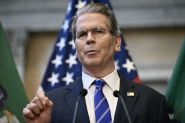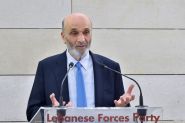
Calls for de-escalation have fallen on deaf ears. Hezbollah and Israel both rejected the proposal from Paris and Washington for a 21-day temporary ceasefire, aimed at paving the way for negotiations toward a lasting calm along the Lebanese-Israeli border. Consequently, the emergency United Nations Security Council meeting, convened on Wednesday at France’s request, ended unsuccessfully.
While the text put forward by the international coalition focuses on the implementation of United Nations Security Council Resolution 1701, the question remains: would reverting to the 2006 framework that ended the 33-day war be suitable in the current context?
Praised at the time as a diplomatic victory, Resolution 1701 did not truly put an end to the simmering conflict that has persisted for years. Eighteen years later, Lebanon once again stands on the brink of war, with Hezbollah’s military capabilities significantly bolstered.
In this regard, This is Beirut has learned from Jean Sebastien Guillaume, founder of Celtic Intelligence, that the pro-Iranian group holds a substantial arsenal of weapons, including up to 150,000 rockets and missiles. These are mostly hidden in homes that have been persistently targeted by the Israelis since their military operations shifted to the northern front.
Hezbollah is believed to own the largest non-governmental arsenal in the world, particularly in terms of its rocket and missile capabilities. Since the onset of hostilities on October 8, 2023, the group has launched a total of 3,178 attacks against Israel, including 173 attacks carried out between September 16 and 25, 2024," Guillaume explains. "These strikes encompass an increasing use of medium-range rockets, drones, and more sophisticated missiles, targeting both Israeli military, technological, and civilian infrastructures," he continues, adding, "Although Hezbollah has demonstrated its military capabilities through these attacks, it has yet to deploy its most advanced weaponry, such as precision-guided missiles." According to him, these assets are likely "set aside for a major regional conflict."
This raises questions about the ability of stakeholders calling for the implementation of Resolution 1701 to proceed with the disarmament of Hezbollah. The resolution advocates, among other points, for "the disarmament of all militias in Lebanon" and "the prohibition of any sale or supply of arms and related materials to Lebanon, except those authorized by the Lebanese government."
Has Resolution 1701 Become Outdated?
Adopted on August 11, 2006, Resolution 1701 marked a pivotal moment in the effort to end the July war between Hezbollah and Israel. The conflict erupted after Hezbollah captured two Israeli soldiers in a cross-border attack, prompting Israel to respond with an intense military campaign against Hezbollah in Lebanon. The war resulted in hundreds of deaths and widespread destruction in Lebanon. Concerned about the escalation of violence and the destabilization of the region, the international community quickly mobilized to negotiate a ceasefire.
While the path to Resolution 1701 involved complex and difficult negotiations, it has nonetheless succeeded in maintaining a degree of calm for 18 years, despite constant violations of the resolution on both sides of the border.
Back then, several factors influenced the negotiations. First, Israel's priorities and concerns came into play, as it sought to end Hezbollah's rocket attacks and secure the release of captured soldiers. The Israeli government also required a strong international force in southern Lebanon to prevent Hezbollah from reestablishing its military capabilities near the Israeli border, a goal that ultimately failed. On the other hand, Hezbollah, which refused to disarm, aimed to showcase its capacity to resist Israeli forces.
Backed by the Arab League, the Lebanese government led by Fouad Siniora called for an immediate ceasefire and total sovereignty for Lebanon over its territory. Internationally, France, backed by other European members of the Security Council, was focused on safeguarding Lebanese sovereignty and preventing further regional destabilization. The United States, for its part, firmly supported Israel while also acknowledging that a prolonged conflict was not in the interest of their ally.
Today, the context is quite different. "Resolution 1701 is no longer relevant," notes Guillaume. This is primarily because "Hezbollah remains armed and powerful, despite calls for disarmament. Secondly, the Lebanese state is too weak, both politically and militarily, to enforce the clauses of Resolution 1701. Finally, the United Nations Interim Force in Lebanon (UNIFIL), even with a reinforced one-year mandate, lacks the means to impose complete calm on the ground," he explains. These factors collectively hinder the effective implementation of a resolution that has remained quite fragile for 18 years.
An Unexpected “Deal”
In Lebanon, with the presidency vacant since October 2022, the Speaker of Parliament, Nabih Berri, and caretaker Prime Minister, Najib Mikati, are spearheading the country's diplomatic efforts for a ceasefire. “Mikati mainly plays a supporting role in the current context. According to Fadi Assaf, co-founder of Middle East Strategic Perspectives, Berri is primarily leading these efforts, factoring in his own political calculations for the future.
On the Israeli side, the state remains steadfast in eliminating any threats to its security. Consequently, it intends to pursue its military operations aimed at dismantling Hezbollah's military apparatus. Following the adoption of the resolution, Israel had kept its forces on high alert near the border.
Today, the situation has shifted. Assaf raises the question: "Would Netanyahu's government, which sacrificed hostages to maintain its freedom of action against Hamas, now be willing to abandon its objective of destroying the military capabilities of the pro-Iranian party, especially to facilitate the return of displaced persons from northern Israel?" According to him, this seems rather uncertain, as he explains that for Netanyahu, any hoped-for arrangements stemming from a ceasefire with Hezbollah in the current context would fall far short of expectations. He adds, “In practical terms, these arrangements would pave the way for a repeat of the post-2006 scenario, which ultimately allowed for the events of October 2023 to unfold."
Today, several questions arise regarding the feasibility of reverting to the 2006 framework. It is important to recognize that the dynamics in Lebanon and the broader Middle East have changed significantly since the adoption of Resolution 1701. Factors such as the Syrian civil war, the increasing influence of Iran in the region, the internal fragmentation of Lebanon, and the military strengthening of Hezbollah—which has emerged as a dominant political force in Lebanon and a crucial regional player backed by Iran and engaged in various conflicts—have all contributed to this shift.
Furthermore, Hezbollah's military arsenal, which has grown considerably since 2006, complicates efforts to implement the disarmament model proposed by Resolution 1701. This model was a necessary compromise at the time, yet its implementation has only been partially successful.
Read more



Comments